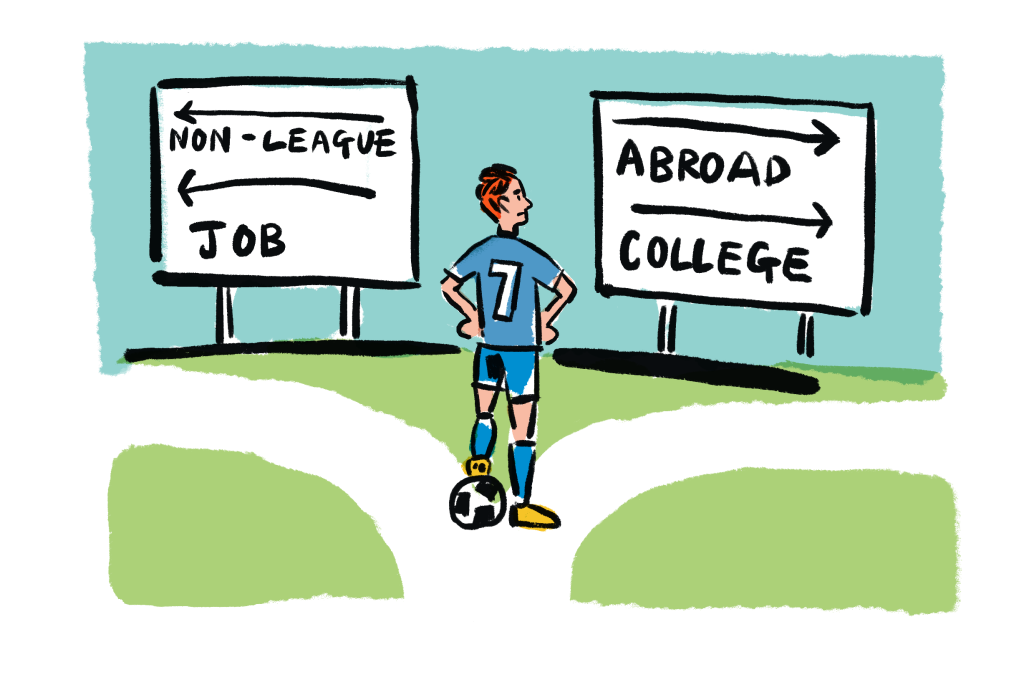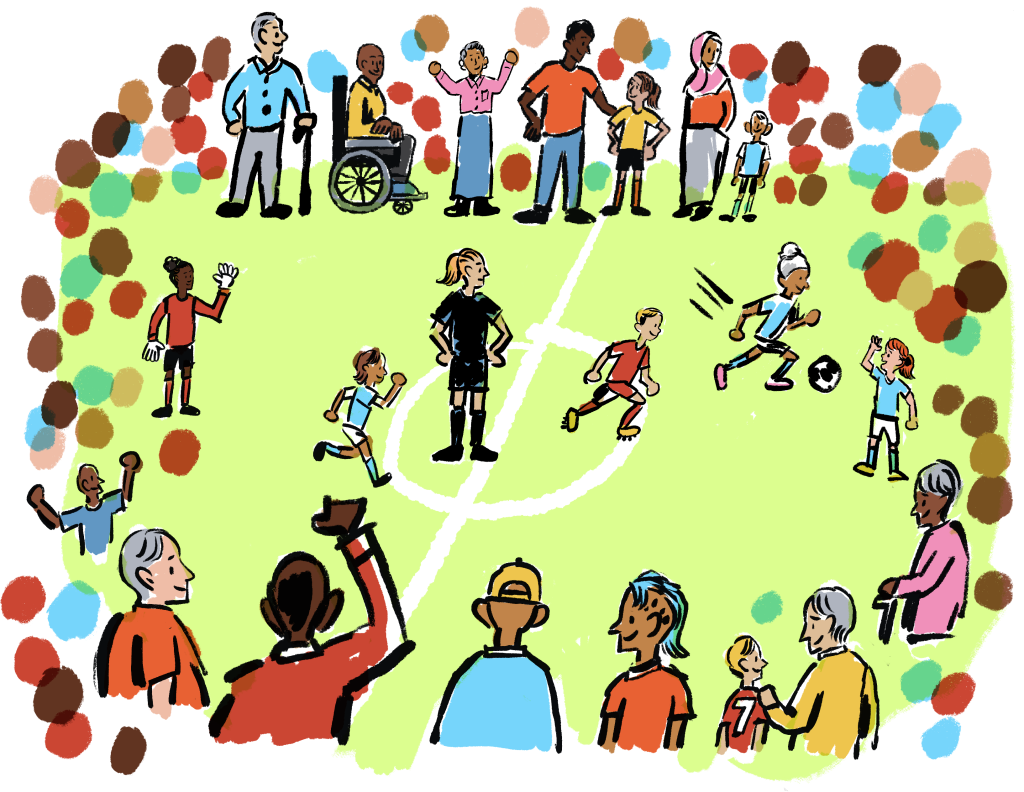What is Safeguarding in Youth Football?
What every parent and guardian should know:
As a parent or guardian involved in youth football, you’ve likely heard the term “safeguarding” thrown about. But what does it really mean, and why is it so crucial?

At its core, safeguarding is about ensuring our kids can enjoy football in a safe, positive environment. It’s not just about protecting them from harm, but also promoting their wellbeing and helping them thrive both on and off the pitch.
The UN Convention on the Rights of the Child (UNICEF) states that every child has the right to be protected from harm and to enjoy their sport. Football clubs across the UK take these rights seriously, implementing various measures to uphold them.
Alex Hepton, Safeguarding and Wellbeing consultant talk about the signs to look out for when our kids may not be ok.
So, what does safeguarding look like in practice? At grassroots level, you’ll notice things like DBS checks for coaches, clear codes of conduct, and a designated Club Welfare Officer. These aren’t just box-ticking exercises – they’re essential steps to create a safe space for our young players.
For those with children in academies, the safeguarding measures are often more comprehensive. You might see regular staff training, strict protocols for away trips, and dedicated safeguarding teams. These additional layers reflect the increased time and commitment involved at this level.
But let’s not forget our older teens. As they navigate the tricky waters of adolescence, safeguarding remains just as important. They might face new challenges – peer pressure, changing relationships, increased independence – and need our support more than ever. It’s crucial we stay engaged and aware, even as they grow more independent.
Safeguarding officers play a vital role in this process. They’re the go-to people for any concerns about a child’s welfare. Don’t hesitate to reach out to them – they’re there to help, not judge.
As parents and guardians, we can support safeguarding efforts by:
- Knowing who the welfare officer is at our child’s club
- Familiarising ourselves with the club’s safeguarding policies
- Keeping open lines of communication with our children
- Being vigilant and reporting any concerns, no matter how small
Remember, safeguarding isn’t about wrapping kids in cotton wool. It’s about creating an environment where they can enjoy football, challenge themselves, and grow – all while feeling safe and supported.In the end, it’s about putting our children first. Their safety, their enjoyment, their rights – that’s what matters most. By working together – parents, clubs, and players – we can ensure that youth football remains a positive force in our children’s lives.
So next time you’re on the sidelines, take a moment to appreciate the safeguarding measures in place. They’re helping to keep the beautiful game beautiful for our kids.
More on Safeguarding click here .
Did this artilce ignite something in you? Or maybe you want to continue the conversation, ask questions, suggest new topics, or support others like you on the youth football journey. If so, click here to join the conversation in the forum or attend one of our workshops to delve deeper into topics covered here and much more.
There’s nothing better than connecting face-to-face with other parents and guardians in our community at our live events and local meet-ups, so check out what’s happening and when in our What’s On section.
⚠️ DISCLAIMER: The thoughts, views and opinions expressed are those of the contributors and do not necessarily purport to be or reflect those of No1Fan.club. VIEWER DISCRETION IS ADVISED. To see our full disclaimer, please click here.




